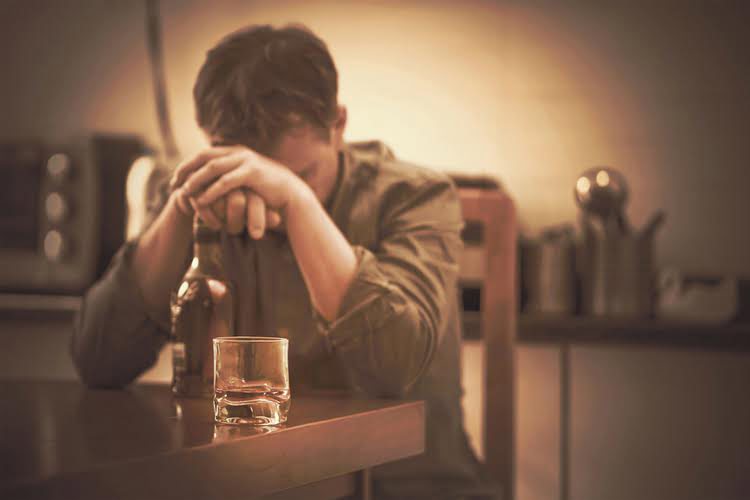This condition involves rapid, uncontrollable jerking of the eyes, particularly noticeable as horizontal gaze nystagmus. Such movements hinder the ability to maintain a steady gaze and track objects. Effective addiction treatment should address both the physical and emotional sides of alcohol use.
Alcohol’s Impact: Eye Stroke Risk Explored
People may also consider quitting smoking and reducing alcohol consumption to reduce the risk of negative effects on the eyes and other aspects of health. Once a person recovers from intoxication, their vision should return to normal. The ethanol in alcohol impairs vision by flowing into the tear-film of the eye, distorting the quality of the images seen. Additionally, alcohol decreases the ability to absorb vitamin A, which is essential for preserving night vision.
- This noticeable effect is temporary and usually resolves as the body metabolizes the alcohol.
- Alcohol can also increase sensitivity to glare, making it difficult to see in the presence of bright lights or headlights.
- Similarly, the pupils might not constrict or dilate at the necessary speed in response to changes in light, leading to the potential blurring of vision.
These include medical supervision for safe withdrawal and counseling to address underlying issues. For conditions like cataracts, surgical removal, and lens replacement may be necessary. Advanced cases of macular degeneration might benefit from anti-VEGF injections that slow disease progression. Alcohol increases blood sugar fluctuations and compromises blood vessel integrity. It also leads to bleeding in the eye, vision distortions, and potentially retinal detachment. It leads to difficulties with activities that need to be performed while looking straight ahead, such as driving, sewing and reading.
Possible long-term effects on eyes
While an occasional drink may not lead to serious eye health issues, excessive and chronic alcohol consumption poses a significant risk. If you are concerned about the effects of alcohol on your vision, please consult with your eye specialist. So, keep an eye on your alcohol consumption for the sake of your eyes and your overall health. Long-term heavy drinking can also damage or accelerate the ageing of structures inside the eye, such as the lens, retina, and optic nerve.

Alcohol increases the risk of cataracts, a clouding of the eye lens

However, when the body is dehydrated due to alcohol consumption, it struggles to produce enough tears. This lack of sufficient lubrication leads to the condition known as dry eyes. Alcohol’s impact on eye pressure and its potential to contribute to conditions like Glaucoma is Alcoholics Anonymous complex. Some research indicates that alcohol consumption may lead to a temporary decrease in intraocular pressure (IOP). This is because alcohol is a diuretic and can reduce fluid volume within the eye.
This dehydrates your eyes, accelerating the symptoms of dry eye syndrome (which include itchiness, a burning sensation, blurry vision, and for some people, watery eyes). By understanding the potential risks and taking steps to protect your eyes, you can enjoy social drinking responsibly while safeguarding your precious sight. Most people know about the most common risks excessive alcohol consumption poses to your health, including liver damage, anemia, cardiovascular disease, and depression.
In contrast, heavy drinking can exacerbate this effect, making it difficult to see clearly. Our eyes, though small, are deeply affected by alcohol use, revealing a surprising amount of health issues. This occurs due to weakened eye-muscle coordination and reduced communication between the eyes and the brain.
What are the potential causes of blurry vision after drinking alcohol?
It can impair the functioning of the eye muscles and the coordination between the eyes and brain. This can lead to symptoms such as blurred or double vision, difficulty focusing, and slower eye movements. Consuming foods rich in vitamins A, B12, and antioxidants can support eye health. Alcohol can deplete essential nutrients that the eyes need to function properly, increasing the risk of conditions like optic neuropathy. Leafy greens, carrots, eggs, and fish high in omega-3s can help protect the retina, support nerve function, and reduce inflammation caused by alcohol. A balanced diet plays a crucial role in preventing long-term https://traveldent.me/58-substance-abuse-group-therapy-activities-for/ vision damage and maintaining overall health.
What are the five signs of alcohol poisoning?
This website does not recommend or endorse any specific tests, physicians, products, procedures, opinions, or other information that may be mentioned on the Site. Reliance on any information provided by this website is solely at your own risk. An ophthalmologist can monitor changes in vision, eye pressure, and retinal health, allowing for timely intervention. When alcohol has caused permanent vision damage, vision rehab programs can help maximize remaining sight and maintain independence.
How Alcohol Affects Vision
It doesn’t happen often, but when alcohol is involved, you’re at a higher risk. This slowed communication from the eyes to the brain not only affects how we interpret images, but can also set off a myriad of other side effects and even alcohol blindness symptoms. Treatments blurry vision hangover will vary greatly based on a person’s symptoms or health conditions that develop as a result of alcohol use. A person should talk with a doctor about treatment options that will work for them. A person who experiences vision issues should see an ophthalmologist — a doctor specializing in eye care.
